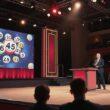By Pierre Lévy
On January 12, the Croatian President was triumphally re-elected in the second round with 74.7% of the vote. Zoran Milanović had narrowly missed the win in the first round with 49.1% of the vote, whereas five years ago he had won with 52.7% of the vote and 29.5% of the vote in the first round.
Never before had a state with a population of 3.8 million, born from the disintegration of Yugoslavia, elected a head of state with such a high result. Milanović, a former social democratic prime minister from 2011 to 2016, was supported by a coalition that included his former party, but he built his popularity with a tone that his opponents label as “populist.” Some even call him the “Trump of the Balkans.”
In particular, he has largely exploited corruption scandals that have shaken the current government. For example, the health minister was arrested in November on suspicion of money laundering, abuse of office, and influence peddling.
The government and, in particular, Prime Minister Andrej Plenković suffered a severe defeat. The candidate supported by the government, Dragan Primorac, a former education minister, had to settle for less than 26% of the vote, and that at a low voter turnout of 44.2% of registered voters.
The ruling party had to take another blow, following a 4.1% decline (34.4%) in the parliamentary elections last April. The HDZ, the party of Franjo Tudjman, the “Father of Independence” has ruled the country with a few exceptions since 1991. It was the HDZ that brought Croatia to the EU, which it joined in 2013 as the last country.
Mr. Plenković, who has been leading the government since 2016, is a strong advocate of European integration and NATO membership. His animosity with the President is well known, especially since he tried to run as a candidate in the Prime Minister’s electoral district last year. The Constitutional Court had ultimately blocked this unexpected candidacy, which led the President to call the judges “uneducated farmers.”
It is not the often provocative tone of the President that offends the government and the right-wing majority, but rather his very critical positions against Brussels; he denounces the European Commission as “autocratic and not representative.” And above all, his refusal to involve the country in military support for Kiev, which leaves many voters appreciating his role as a counterbalance.
Although the President does not have real power; that lies with the government. But he represents Croatia abroad and has a say in the conduct of foreign policy. Moreover, he is the commander-in-chief of the armed forces.
This gives him a certain weight and has allowed him, in particular, to stand in the way of the delivery of weapons to Ukraine and the involvement of the national military in the training of Ukrainian soldiers under the aegis of NATO. “As long as I am the President of the Republic, no Croatian soldier will fight in the wars of others” he recently said.
More was not needed to enrage Mr. Plenković. The Prime Minister condemned the “dictatorial and pharaonic” style of his rival and accused him of playing into Moscow’s hands, alienating Zagreb from its euro-atlantic allies, and thus destabilizing the country. In short, the Prime Minister warned, “The difference between Zoran Milanović and Dragan Primorac is simple: the one leads us east and the other west.” Plenković emphasized, “We need a President who will anchor Croatia in the West.”
While the President had condemned Russia’s decision to start a war in Ukraine, his refusal to involve the country in supporting Kiev has been met with the accusation that he is a “Marionette of Moscow.”
That almost three out of four voters chose his re-election is far from harmless. Of course, the corruption scandals, and the economic and social situation have also influenced the voters. Croatia has indeed the highest inflation in the Eurozone. And the emigration to other countries is massive, leading to a severe labor shortage in the country.
But the rejection of adaptation to the pressure of the EU and NATO has certainly played a role in the election, especially since the President, unlike in domestic policy, has prerogatives in the diplomatic-military field.
Croatia seems to be aligning with the EU member states in which the military and political support for Kiev is significantly disputed, a camp that is now increasingly populated.
Hungary had set the example, with the government leader Viktor Orban triumphing in the 2022 elections on this basis. The Slovak Prime Minister Robert Fico, who, like Milanović, comes from the social democratic family but was rejected by it, has taken a similar path, as Bratislava wants to resume Russian gas deliveries. In this country, a survey found that the opinion that Russia is a security threat has decreased from 68 to 49%.
In Austria, the FPÖ, which advocates for friendly relations with Moscow, could soon seize the Chancellor’s office, even though there is immense pressure to prevent this.
In Romania, the presidential elections were simply canceled in November after the “pro-Russian” candidate surprisingly won the first round, and will now be held in May.
Bulgarian voters will probably vote for the eighth time in four years, in a context where the parties accused of being Kremlin-friendly are growing stronger. Even the very EU-friendly Bojko Borissow, who long ruled the country, has just questioned the usefulness of signing a cooperation agreement between Sofia and Kiev, although this has been negotiated for many months.
Finally, Germany and the Czech Republic will be calling their voters to the polls in February and October, respectively. In the first case, the AfD, which has been critical of the current government’s military engagement, could achieve an unprecedented result. And in the second case, observers predict a victory for Andrej Babiš, who is close to Orban.
At the moment, the list has been expanded by Croatia. It is hard to imagine that this sequence of results is a mere coincidence.





